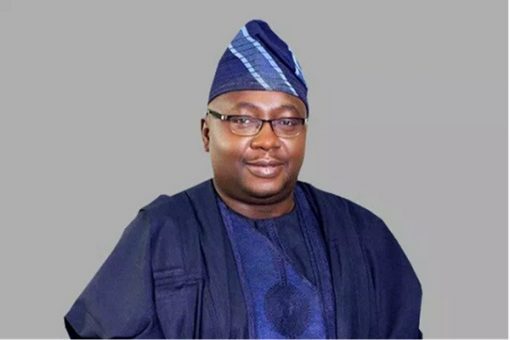Nigerians spend some N30 trillion yearly on self-generated, off-grid electricity due to inadequate public power supply.
The nation could however save more than three quarters of this annual spending as investments in national grid system and increase in public power supply revenue to N6 trillion will guarantee stable power supply.
In a stack portray of the power sector mismatch, the entire annual revenue of the Nigerian Electricity Supply Industry (NESI) in 2023 was about N1 trillion.
Minister of Power, Adebayo Adelabu yesterday painted a vivid illustration of the power sector challenge, underlining the need for reforms and long-term investments to ensure stable supply.
Adelabu spoke on “Navigating Nigeria’s Pathway to Achieving Energy Security Sustainability on the Journey to Net Zero” in Abuja at the 2024 Nigerian Oil and Gas (NOG) conference.
He outlined that as against N30 trillion being spent on generation of electricity from diesel, petrol, gas and generators by individuals and companies, an increase of N5 trillion in revenue from national grid system would ensure round-the-clock electricity supply nationwide.
Citing many studies on the power sector to buttress his points, Adelabu noted that a study in 2023 had indicated that N16.5 trillion was spent on diesel, petrol and servicing of power generators.
“If you know how much people spend buying diesel, buy petrol, buy generators, servicing them in a year… The last study we had in 2023, a total of N16.5 trillion was spent on diesel in power generation. Even a number of the industries are off the grid.
“So spending in the sector off the grid is close to N30 trillion. The revenue for the entire industry, the grid, the entire power sector was just N1 trillion for 2023, all that went to generation companies, transmission company and the distribution.
“The informal spending on generation, in diesel, petrol, was close to N20 trillion. Even if it is just a quarter of that is out in the official power sector, we are talking incremental revenue of N5 trillion, that will push the sector revenue to N6 trillion. Significantly, we are going to have uninterrupted 24/7 power supply,” Adelabu said.
He noted that confidence in the sector has been restored as all the manufacturers that cut off from the national grid have been reconnected having realised that the ‘Band A’ tariff is cheaper than private electricity generation.
He added that the last study revealed that ‘Band A’ customers were enjoying uninterrupted power supply.
According to him, whereas the ‘Band A’ tariff is N206/kwh, electricity generation with gas costs N290/mwh, petrol cost N450per mwh, while diesel cost N900mwh.
He insisted that it is still far cheaper to remain on the national grid despite the ‘Band A’ tariff.
Mr. Adewale Fayemi of Total Energies, urged the Federal Government to initiate commercial framework that make provisions for recouping of investment in the renewable energy sector.
Fayemi, who was represented by Total Energies Explorer General Manager, Mr. Omotayo Hassan, said the bane of investment in the renewable segment is lack of confidence on how to recoup investments.
“We need to come up with strong commercial framework that gives investors confidence, that allows them recoup the capital they put into market, a reasonable amount of return. That is lacking today,” Fayemi said.
He recalled that he was part of the team that had negotiated 14 solar projects for the country, all which appeared stalled for one reason or the other.
“But the key reason they have not gone into financial close is because there is no commercial strategy for allowing risk. Those projects should have put 1gigawat of renewable power on the national grid. We need to look into this,” Fayemi said.
He said the company has committed significant amount of resources, some $4 billion into renewables.

